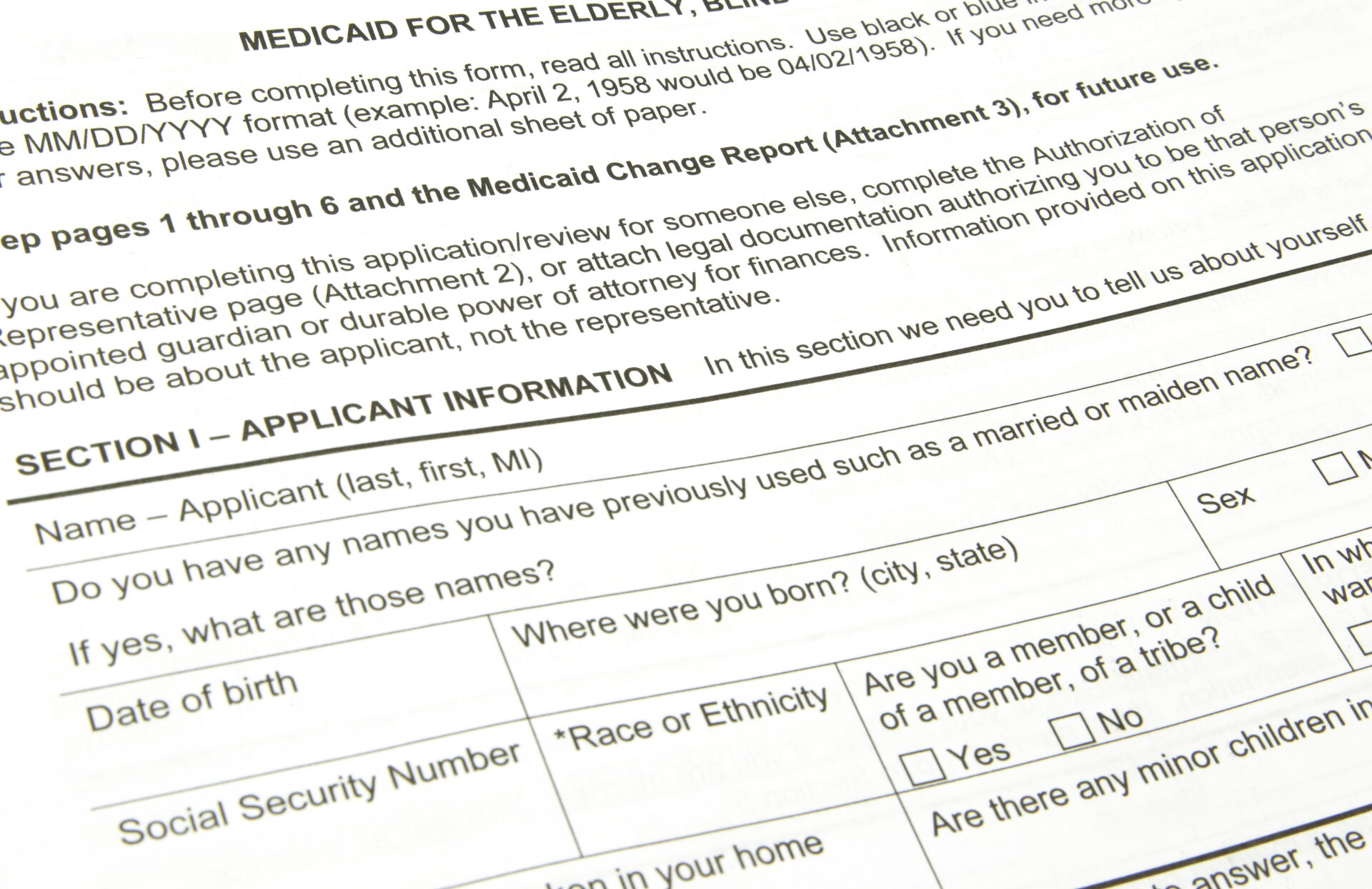Medicaid provides free or low-cost health coverage to low-income people, families and children, pregnant women, the elderly and people with disabilities.
According to the Kaiser Family Foundation (KFF), West Virginia has the highest percentage of Medicaid enrollment in the U.S., with more than 564,000 people enrolled, or 29 percent of the state’s population in 2017.
According to the West Virginia Center on Budget and Policy, the Fiscal Year 2025 budget the legislature passed this year underfunded the state’s Medicaid program by about $150 million.
The budget Gov. Jim Justice originally proposed fully funded Medicaid, according to Kelly Allen, executive director of the West Virginia Center on Budget and Policy.
“By our analysis, it was underfunded by about $150 million relative to the governor’s proposed budget, which would have fully essentially funded Medicaid according to what Medicaid agency officials were saying that they needed to keep current levels of services,” Allen said.
Medicaid is a joint federal and state program, which means for every dollar the state allocates toward the program, the federal government matches those funds through the Federal Medicaid Assistance Percentage (FMAP).
Each state’s FMAP is based on a formula in the federal Medicaid statute that is based on state per capita income. The lower a state’s per capita income, the higher the state’s FMAP, or federal Medicaid matching rate will be. These rates vary from 50 percent to 74 percent.
West Virginia’s Fiscal Year (FY) 2025 FMAP percentage is 73.84 percent with a multiplier of 2.8 percent.
“Because Medicaid is a matching program,” Allen said. “For every dollar of state funding that we spend, we pull down almost $3 in federal funds, that can actually total over $600 million in potential cuts to Medicaid, which is about 12 percent of the entire program.”
The governor’s proposed budget allocated about $517 million to Medicaid, whereas the enacted budget allocated $438 million.
Justice said during a press briefing on April 17 that he is not to blame for the budget cuts and said he would check and see if there was any way that it could be funded, without bloating the budget.
“Why did we do this? Why in the world did we do this? Why did we strip $100 million out of something that we didn’t have to do and absolutely we knew it was going to really hurt people,” Justice said.
Lawmakers said the budget cuts were necessary due to possible federal government clawback of $465 million in COVID-19 relief funding for schools.
Justice announced Friday that West Virginia will not face that clawback.
“I don’t think that argument ever carried a lot of water because I don’t think that was a reason to underfund the budget itself, I think that was a reason to hold on to surplus dollars, those one time dollars that they didn’t allocate,” Allen said.
Allen said before the pandemic, the state was spending more on Medicaid than it is now. That is because during the pandemic, a public health emergency allowed additional federal funds to be distributed to programs like Medicaid.
“One factor that allowed the state to have a flat budget for all of these years was, we didn’t, we weren’t really able to reduce our state spending on Medicaid, because we were getting all this extra federal Medicaid money due to the pandemic,” Allen said.
In 2023, federal spending stopped with the end of the public health emergency and the passage of the Consolidated Appropriations Act.
“This isn’t really an issue of Medicaid spending being out of control or a big spike in Medicaid spending,” Allen said. “It’s really just that that federal, extra match expired, which we always knew it was going to. And the state’s responsibility now is essentially to go back to its pre-pandemic levels of Medicaid funding.”
If lawmakers don’t amend the budget in an expected May special session, there are a few ways that Medicaid costs could be reduced including a reduction in eligibility.
Currently, single adults who make about $20,000 a year, or a family of four earning around $40,000 annually qualify for Medicaid. The program also covers insurance for children and people with disabilities.
Cynthia Persily, secretary of the West Virginia Department of Human Services, testified in front of the Joint Health Committee on April 15 that services could be cut if the program is not fully funded.
“Whenever there’s a shortage in Medicaid dollars, there are several things that we can do, right,” Persily said. “We can decrease enrollment in Medicaid, we can decrease services, or we can decrease the reimbursement rate. And so there would have to be some sort of combination of those three pieces in order for us to make Medicaid whole.”
Allen said there are many services the federal government considers optional.
“But I don’t think you and I and most West Virginians would think they’re optional,” Allen said. “That’s things like prescription drugs, substance use treatment, physical and occupational therapy, things like waiver programs, intellectual and developmental disability programs. These are all programs that are optional for states to offer, but they’re really, really important to people.”
A representative from the Department of Human Services, Whitney Wetzel said in an email statement to West Virginia Public Broadcasting that the department is hopeful the budget will be restored in a special legislative session. However, if cuts are sustained, the DoHS’s Bureau for Medical Services (BMS) will review optional services and rates.
Wetzel further explained that Medicaid eligibility rules are mandated by the Centers for Medicare and Medicaid Services (CMS).
“There are currently no plans that would impact members’ eligibility,” Wetzel wrote.
Appalachia Health News is a project of West Virginia Public Broadcasting with support from Marshall Health.
